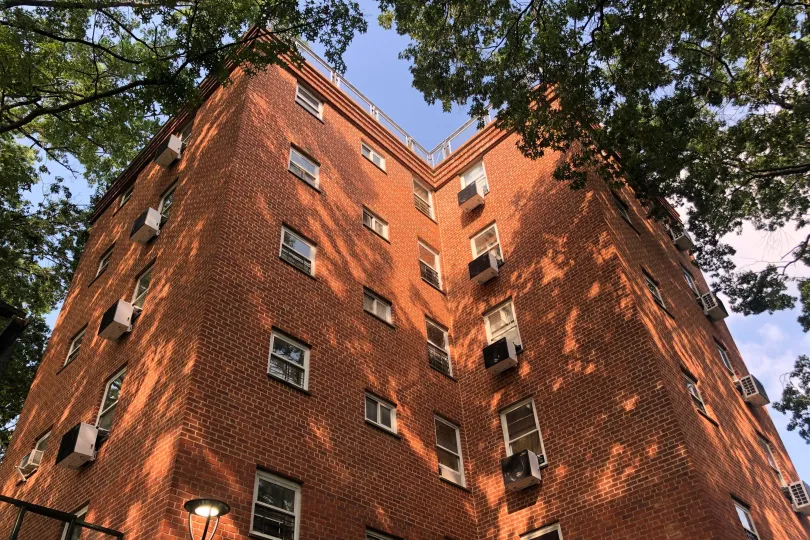Not Just Hot Air: NYCHA Starts Swapping Out Steam Radiators for ‘Greener’ Pumps
New units were developed specifically for NYCHA as part of a 2021 challenge to companies to build a better heater for the city’s public housing.

 This article was originally published on by THE CITY
This article was originally published on by THE CITY
Radiators are on the way out at a Queens public-housing complex — where the first wave of a project to modernize how 10,000 apartments are warmed in the winter and cooled in the summer is taking shape.
The New York City Housing Authority this month installed electric-powered heat pumps at 12 apartments inside the Woodside Houses, where residents lost heat and hot water for months in 2021 after boilers at the 20-building complex were damaged by flooding from the remnants of Hurricane Ida.

Brooklyn Boro
View MoreNew York City’s most populous borough, Brooklyn, is home to nearly 2.6 million residents. If Brooklyn were an independent city it would be the fourth largest city in the United States. While Brooklyn has become the epitome of ‘cool and hip’ in recent years, for those that were born here, raised families here and improved communities over the years, Brooklyn has never been ‘uncool’.